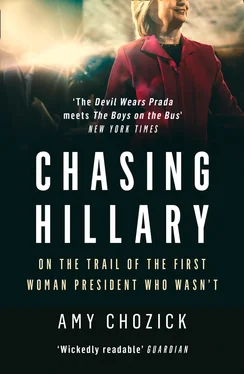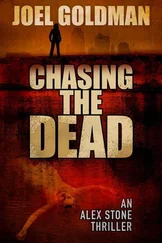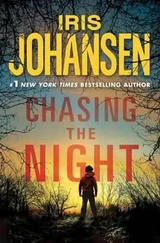It had been just over a year since Hillary had stepped down as secretary of state, and now certain that Carolyn Ryan had inherited the personal vendetta against her family, she had instructed her most trusted loyalists to convene at the New York Times ’ Washington bureau and express her concerns about my coverage. Why would Hillary do that if she wasn’t running?
When The Guys emailed us a list of the seven aides who planned to attend the meeting, Carolyn wrote back, “We’re gonna need a bigger boat.”
We all agreed the discussion would be off the record, but it didn’t take long for somebody to tip off the conservative Washington Free Beacon , which soon after published a story with the headline HILLARY TO NEW YORK TIMES: BACK OFF. But the Beacon story only mentioned the presence of Original Guy and Huma—who was hard to miss floating through our slovenly newsroom like an exotic bird in a red wool coat. They didn’t know the half of it.
Everyone huddled into the narrow entryway under the bureau’s fluorescent lights. The Guys forced themselves to offer me their usual clipped hello, which always reminded me of Seinfeld opening the door for Newman. “Hello, Amy .”
After some handshakes, Carolyn led everyone down the drab, carpeted stairway to the conference room where The Guys helped themselves to coffee only to find that it had been left over from a previous meeting. The brown liquid was dank and acidic, and the creamer crumpled as it splashed into their Styrofoam cups. We hadn’t planned it that way, but serving stale coffee and day-old Danish to DC’s most powerful people did send an effective message that things probably wouldn’t go their way.
I can’t get into the details. I can only say that they griped about stories I thought were positive, like one about Bill building a charitable legacy in Africa. (They hated the timing.) They complained about stories I thought were neutral, like Hillary working to rebuild bonds with black voters. (Black people never left the Clintons, they said.) They understandably despised a story about a Ukrainian oligarch, Victor Pinchuk, who’d given millions of dollars to the Clinton Foundation and had a slew of meetings with State Department officials. (Victor liked the story. He invited me to his annual conference typically held in Yalta, the tsars’ fabled Black Sea resort town. I declined.) But mostly, they hated that the beat existed at all. They said Hillary was a private citizen.
The story that put me on the radar as the Times ’ Hillary chronicler and made that proverbial target on my back more like a permanent tattoo arrived in a January 2014 issue of the New York Times Magazine , along with a doughy Hillary moon face floating amid intergalactic dysfunction on its cover. I’d meant for my “Planet Hillary” story to serve as a fifty-seven-hundred-word primer about all the people the Clintons had collected over the years and the “organizational meshugas [that] already threatened, once again, to entangle” Hillary as she prepared for 2016. In an accompanying chart, I categorized the Clintons’ minions (and almost all my would-be sources) into competing solar systems. There was “The Inner Circle,” “The 2008 Victims,” “The People Who Do All the Work,” “Loyal Henchmen,” “Frenemies,” “Poseurs,” and so forth. Not surprisingly, almost everyone hated their designated place in the universe.
Doug Band called to complain that he’d been positioned (in the category “The White Boys”) next to the floating head of the irascible wonk and former White House policy adviser Ira Magaziner. “I can’t believe you put me next to that asshole. You know I hate that guy!”
One of the Poseurs yelled at my editor that the placement could’ve cost him his gig as a paid Fox News contributor. Another offered to get Bill Clinton on the phone to tell us that he wasn’t a poseur. To which my editor replied, “That’s exactly what a poseur would do!” A New York executive told me the “Poseur” label had been the “worst thing to ever happen to me.” (He lived a charmed life.) Worse, I’d been somewhat of a puppet in all of this, later learning that all the poor schmucks who ended up designated as Poseurs had at some point pissed off The Guys, who’d accordingly steered me toward tagging them with that label. One of them, a friend and donor, was also the ex-husband of the buxom blonde whom one of The Guys had an affair with on an earlier Foundation trip to Africa.
I’d started to get used to the idea of breaking some eggs to make an omelet, but with the “Planet Hillary” story, I’d dropped the whole damn carton.
Carolyn always had her reporters’ backs. I knew that after the DC meeting, she’d plop down on the sofa in her office next to the Ping-Pong table and tell me to never doubt my coverage. She’d remind me that we should have a combative relationship with the people we cover—and she’d say that I deserved combat pay. But during the meeting, Carolyn didn’t say much. She disarmed the group the same way she disarmed reporters who came into her office unprepared. She took exaggerated sips of Diet Coke and squinted as they spoke, sometimes jutting her neck toward our visitors and then leftward to me giving the impression that she was listening to crazy talk and craved simultaneous translation.
I kept trying to fill the silences. I apologized. I said I’d try to do a better job next time and I’d be more careful moving forward. But that just pissed The Guys off more. The shrinking violet act and all.
They all seemed trapped in a time warp. Whitewater was yesterday, but all the positive stories and endorsements the Times had given Hillary in recent years were worthless relics.
I could’ve tried to defend myself, but I was up against seven much smarter professional Hillary defenders, including Cheryl, a former deputy White House counsel. I didn’t stand a chance. I kept thinking of the scene from Full Metal Jacket when Matthew Modine’s Private Joker says, “Sir, the private believes that any answer he gives will be wrong and the senior drill instructor will only beat him harder if he reverses himself, Sir!”
My train back to New York after the meeting was delayed for hours. I crouched on the floor of Union Station between a Jamba Juice and an Auntie Anne’s pretzel to charge my iPhone and check my messages. The Guys had dumped me. Their email might as well have said, “It’s not you, it’s me.” Or they could’ve used the same line the Colombian waiter I went on a couple of dates with in my twenties did when he texted me, “U R 2 high maintenance.”
From then on, I was to deal directly with Cheryl.
Though she outranked The Guys, this didn’t feel like a reward. My job required me to have some semblance of a relationship with Hillary’s press aides. There wasn’t even a campaign yet, and I’d already failed. As it turned out, my interlude with Cheryl lasted a couple of weeks until she got sick of me, too, and kicked me back to The Guys. Only this time instead of the OG, I was now to deal with his less experienced but more presentable protégé, the brown-loafers wearer.
Months later, when OG presented his Mini-Me to the rest of the political universe, everyone thought of him as the nice one. They’d gush, “Have you met him yet? He is such a nice guy.” And at first, Brown Loafers Guy was a breath of fresh-faced air. He burst with optimism about Hillary’s future and his own. He had OG’s biting wit and a full suite of adorable facial expressions that played well on cable TV. He had a direct line to Hillary (who adored his adorableness) and none of OG’s dark edge, sexist undertones, or tendency toward high drama.
The Guys got help from outside supporters. A ragtag group called the HRC Super Volunteers sent me a warning: “We will be watching, reading, listening, and protesting coded sexism …” According to their list, sexist language included “polarizing,” “insincere,” “inevitable,” and “secretive, will do anything to win, represents the past, out of touch …”
Читать дальше












